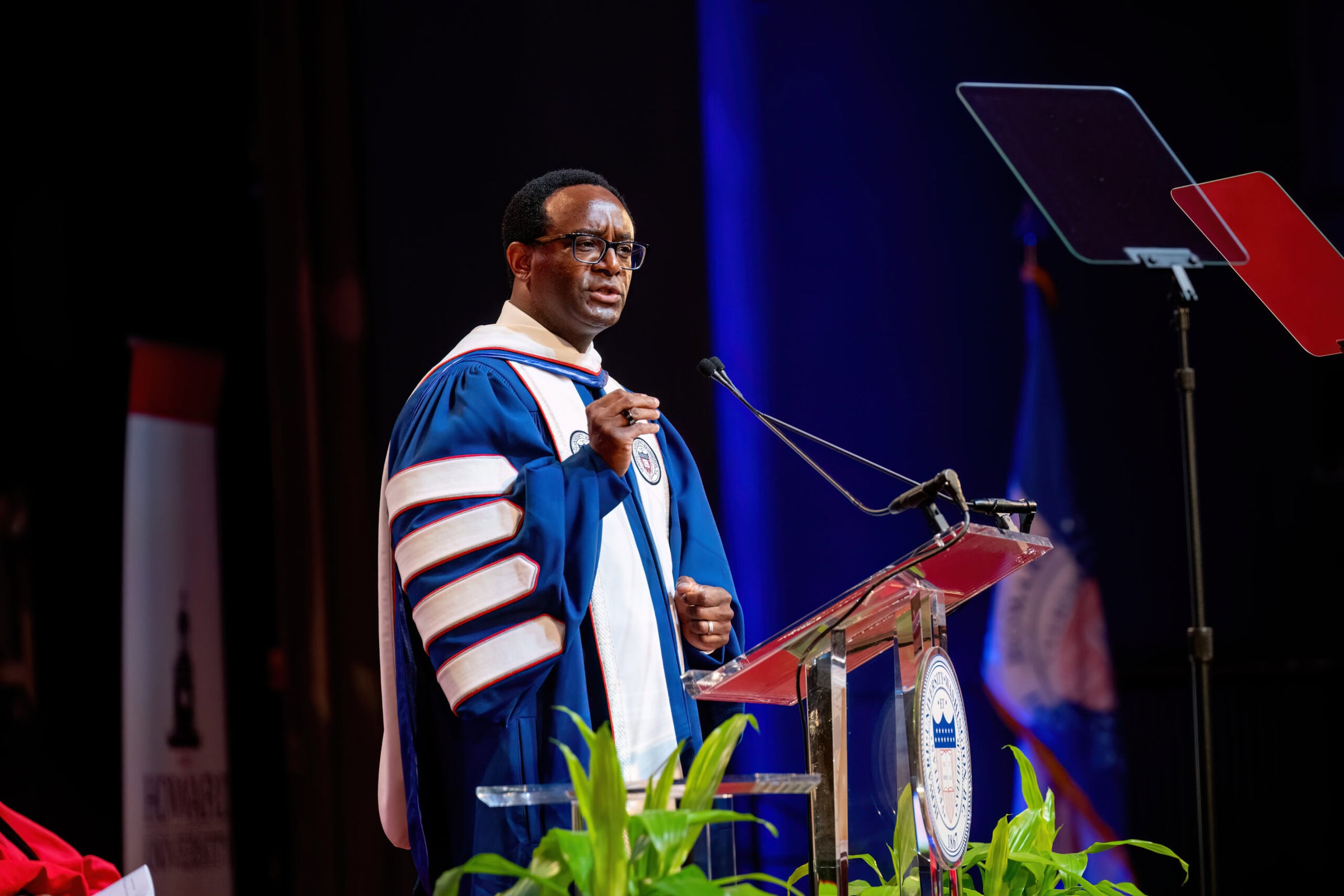Some 30 years ago, I entered the PhD program in history at the University of Wisconsin-Madison, my first entry into what would become a lifelong vocation. In pursuing this career, I traversed the normal stages, earning first a master’s degree, then a doctorate, then going from assistant professor to associate to full professor and finally department chair. About eight years ago, I became a dean and have remained one ever since, first at the University of California, Berkeley, now at UC Santa Cruz. At this point, my years as a senior university administrator have been roughly equivalent to my years in graduate school. Administration has therefore become a significant part of my life as a historian. As a historian, I have been trained to study change over time. As an administrator, I can sometimes be an agent of that change.
Why do people go into academic administration, and what do we get out of it? Certainly, it is not, for most, the goal that propelled them into academia in the first place; I’ve never known or heard of anyone who started a PhD program so she could become a dean, for example. Nor, unfortunately, is it generally to win the approval of one’s colleagues. I still remember a professor in my department telling me, when I was an associate dean, that an associate dean was a mouse in training to become a rat. Since I’ve now achieved full rat-hood, I suppose she had a point, but I can’t help suspecting she didn’t approve of my trajectory. More generally, many critics of higher education point to the proliferation of senior administrators as an example of the corporate takeover of the modern university and as a key reason for rising tuition.
As a historian, I have been trained to study change over time. As an administrator, I can sometimes be an agent of that change.
Serendipity accounts for a lot in life, including one’s choices to enter academic administration. Like many, my first encounter with administration was serving as department chair, something I wasn’t necessarily looking forward to doing. I became a chair because it was my turn—because I had become a full professor and was therefore the most senior member of my department who hadn’t been a chair. I couldn’t think of a convincing reason for getting out of it, nor had I clearly demonstrated the incompetence and irascibility that would lead my colleagues to choose someone else.
Since then, I’ve held several administrative positions, including two deanships, and I can think of several reasons that have prompted me, and many others, to take the administrative path. Certainly, the extra income such positions offer can be an important factor, as can the chance for geographical mobility. But these are far from the only reasons. Some of us also choose to go into administration as a break or a pause from our research, a chance to refresh and do something different. At least a couple of times, I’ve accepted an administrative position after completing a major research project, and at least once, I turned down an opportunity so I could finish a book. Finally, many of us choose such work out of a desire to serve our institution and our profession, to make a difference in a very different way from publishing research and teaching our students.
Many of us choose administration out of a desire to serve our institution and our profession.
Taking up academic administration means changing our lives in several different ways, not all of them good, and developing a new perspective on our profession and our institutions. In my first quarter as department chair, the University of California was hit with a system-wide strike by teaching assistants, one that resulted in their union winning official recognition as a bargaining agent. As someone who had, as a graduate student, been heavily involved in Wisconsin’s Teaching Assistants Association, the first TA union in America to win a contract, finding myself on the opposite side of the barricades was both a sobering experience and a real learning moment.
More prosaically and fundamentally, university administration has meant cutting back on research and largely giving up teaching, the two activities that had lured me into academia in the first place. It has meant getting used to working nine to five, something most professors rejoice in not having to do; continuing to work in my office during the summers, when many faculty colleagues are abroad doing research or at home writing; and learning how to count up vacation time. It has meant meetings, meetings, meetings, and paperwork, paperwork, paperwork. At times, I’ve found myself sneaking into the library, hoping my colleagues wouldn’t spot me devoting time to my own research rather than concentrating on the most pressing personnel case.
It is part of my job to fight for something I believe in passionately.
I have to say I have no regrets, however, because I’ve learned a lot from my work as an academic administrator. More than many professors, I have learned about the world of university staff, those largely unsung and underappreciated figures without whom no university could function. I’ve learned a great deal about how the modern university works, how our society tries to implement its vision of higher education for all. But administrative work has also enabled me to confront problems and sometimes solve them. It means hiring promising junior scholars and enabling them to get tenure. It means finding the resources to support scholarly and research initiatives. It means ensuring that departments are providing the best possible curriculum and instruction for their students, both undergraduate and graduate. It means that, every once in a while, I can point to some real accomplishments that have made a difference for the better in the lives of individuals and to the university as a whole.
Taking up academic administration means changing our lives and developing a new perspective on our profession and our institutions.
Finally, as a dean of the humanities, I can use my position to take a public stand in favor of the liberal arts tradition, a tradition that seems increasingly under siege, in the 21st century. It is part of my job to fight for something I believe in passionately, and to explain to people beyond the walls of academia why it is so important to me and to our society. I spend a lot of time doing development work, but the essence of fundraising for the humanities consists of explaining why what humanities scholars do matters, and why people with resources should invest in them. Learning how to do this, I feel, will make me a better administrator as well as a better historian, because all of us must be able to explain, not just to our students but to a variety of external audiences, why the study of history is important.
I understand why some consider academic administrators professors who have crossed over to the dark side. Let me state, however, in the spirit of yin and yang, that darkness and light cannot exist without each other. The work we do matters, above all because it helps to make the scholarship and teaching we all value possible.
This work is licensed under a Creative Commons Attribution-NonCommercial-NoDerivatives 4.0 International License. Attribution must provide author name, article title, Perspectives on History, date of publication, and a link to this page. This license applies only to the article, not to text or images used here by permission.


